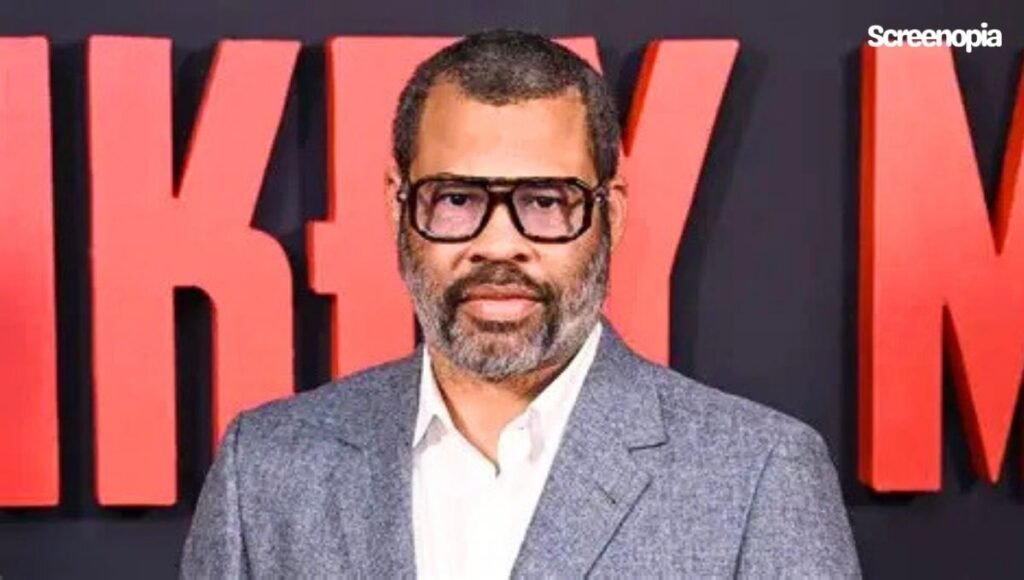When you think of modern horror, one name rises above the rest: Jordan Peele. In less than a decade, he has gone from sketch-comedy star to one of the most influential filmmakers in Hollywood.
What’s remarkable isn’t just his meteoric rise but the way he has redefined the genre for a new generation, blending social critique with suspense in a style that is now distinctly his own.
For audiences who once knew him from Key & Peele, Peele’s pivot to directing was a surprise.
But today, his influence rivals legends of the genre. He doesn’t just make scary movies; he makes cultural events. Each release feels like a conversation starter, sparking think pieces, midnight debates, and countless theories online.
From Comedy to Cultural Commentary
Before his 2017 breakout film Get Out, most people associated Jordan Peele with laughs, not chills. His Comedy Central series with Keegan-Michael Key was lauded for its sharp satire and memorable characters. That background matters because it sharpened his sense of timing, an essential tool for both comedy and horror. Peele once said that laughter and fear are closely related, both relying on surprise and release. That insight proved foundational to his career shift.
Get Out was a cultural earthquake. Made on a modest budget, it grossed over $250 million worldwide and earned Peele an Academy Award for Best Original Screenplay. But more than numbers and trophies, the film placed him at the center of critical conversations about race, power, and fear in America. Peele had created something rare: a horror film that terrified audiences while speaking directly to real-world anxieties.
Building the Jordan Peele Signature
What defines the Jordan Peele style? On the surface, it’s eerie visuals, unnerving silences, and expertly planted twists. But underneath, his films dig into the psychology of everyday life. Whether it’s the discomfort of interracial relationships (Get Out), the idea of hidden doubles (Us), or society’s obsession with spectacle (Nope), Peele anchors his scares in themes that matter far beyond the movie screen.
Another part of his signature is mystery. Trailers for Peele’s films rarely spell out the premise. Instead, they tease, offering fragments that fuel speculation. This secrecy builds anticipation and ensures that when the film arrives, audiences go in hungry to uncover the truth. Few directors working today understand this dance between expectation and payoff as well as Peele.
Peele’s Role as a Producer and Mentor
While directing may have brought him into the spotlight, Peele’s impact goes further. Through his company, Monkeypaw Productions, he’s become an essential supporter of bold voices in storytelling. He has produced projects like Candyman (2021), helmed by Nia DaCosta, and acted as a guiding figure for emerging directors looking to challenge norms.
This move cements him as more than a filmmaker; he’s a cultural architect. By using his platform to lift others, Peele is ensuring that horror won’t stagnate. Instead, it will keep evolving, bringing new perspectives and stories that might not otherwise have found their way to mainstream audiences.
How Jordan Peele Changed the Horror Landscape
For decades, horror often leaned on slashers, jump scares, and supernatural frights. Peele expanded the playbook. His films showed that horror could also serve as sharp commentary, reflecting social anxieties while still delivering thrills. Critics have compared his rise to that of Alfred Hitchcock, another master of manipulating suspense to comment on deeper fears.
But Peele is proudly carving his own lane. His creative choices, casting actors who bring emotional weight, using sound design to unsettle, and mixing moments of humor with dread, have become influential to other filmmakers. Now, whenever a new socially conscious horror film emerges, audiences can thank Peele for helping open that door.
What Audiences Can Expect Next
The big question on fans’ minds: what will Jordan Peele do next?
After Nope, speculation has swirled about whether he’ll return with another original horror film, explore a sequel, or even expand into different genres. Peele has hinted that he has ideas mapped out for years in advance, but prefers to keep details secret until the moment is right.
Still, if there’s one guarantee, it’s that whatever Peele delivers will be different, daring, and designed to spark conversation. His track record suggests he’s not interested in repeating himself. Each film so far has grown more ambitious than the last, widening both his scope and his audience.
Jordan Peele’s next film, originally set for a December 2024 release and later pushed to October 2026 due to industry strikes, has now been removed from Universal Pictures’ release calendar. The project remains in active development, but filming has not yet started, leaving its release date uncertain.
Peele has kept plot details under wraps but expressed excitement about the film, calling it potentially his favorite if executed well. While fans wait for this fourth directorial effort, Peele remains busy as a producer, with his latest film, Him, set to hit theaters soon.
Why Jordan Peele Matters Now
At a time when audiences are inundated with sequels, reboots, and safe bets, Peele represents a rare kind of filmmaker, one who takes risks and trusts that audiences are ready for complex, challenging work. He respects horror’s history but refuses to be bound by it. Instead, he utilizes the genre as a means to explore identity, culture, and the forces that shape everyday life.
That’s why Jordan Peele is more than just a director. He’s become a voice that speaks to this moment in America, bridging entertainment and reflection in ways that few artists can.
Whether you love his films for their scares, their symbolism, or both, one thing is clear: the next chapter of horror can’t be written without him.



